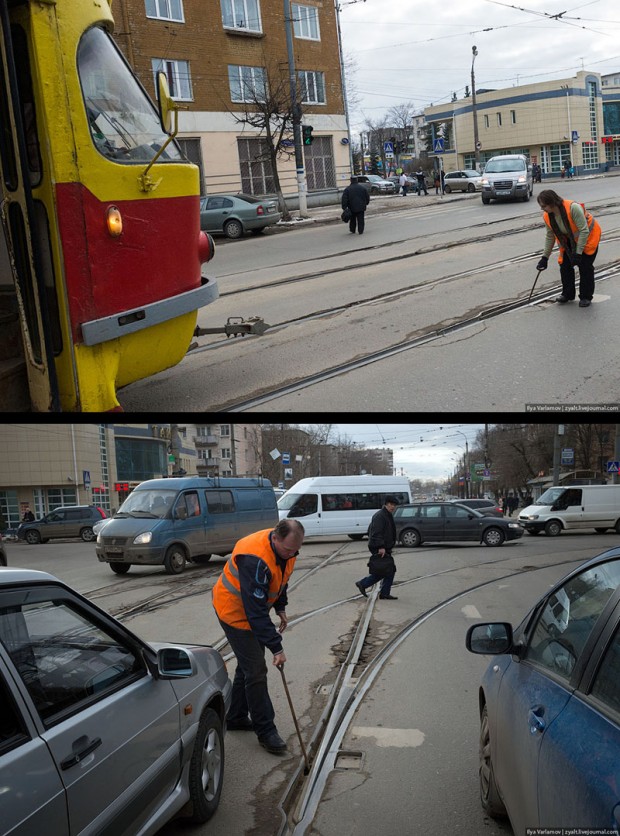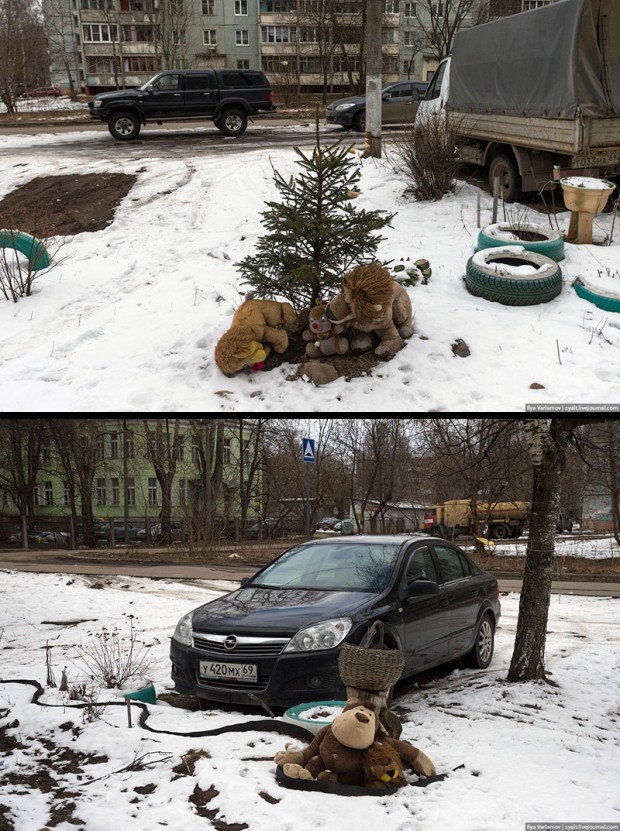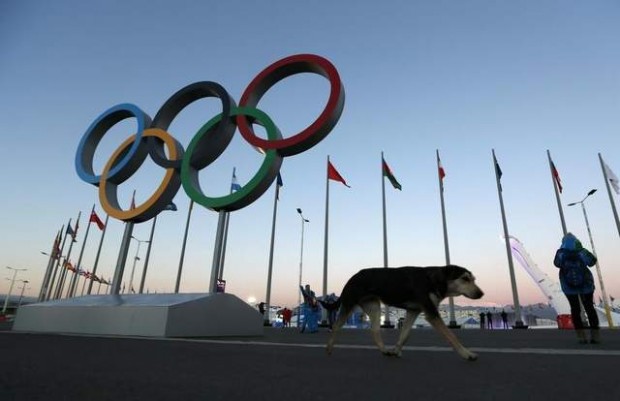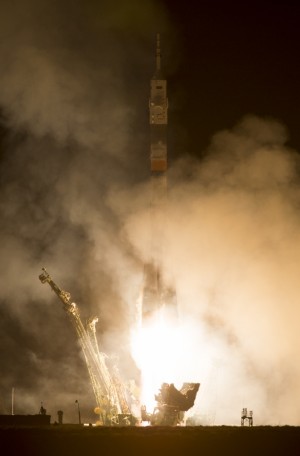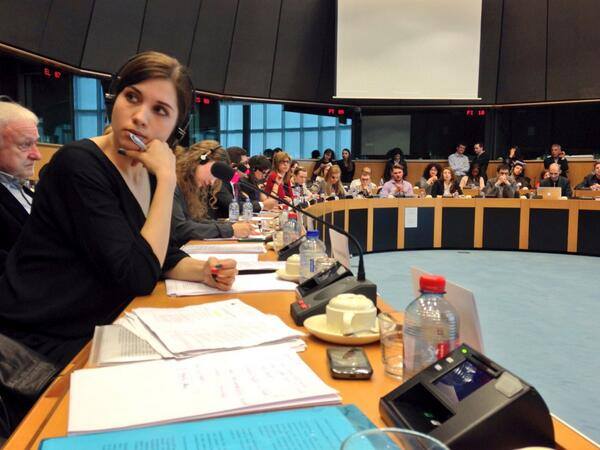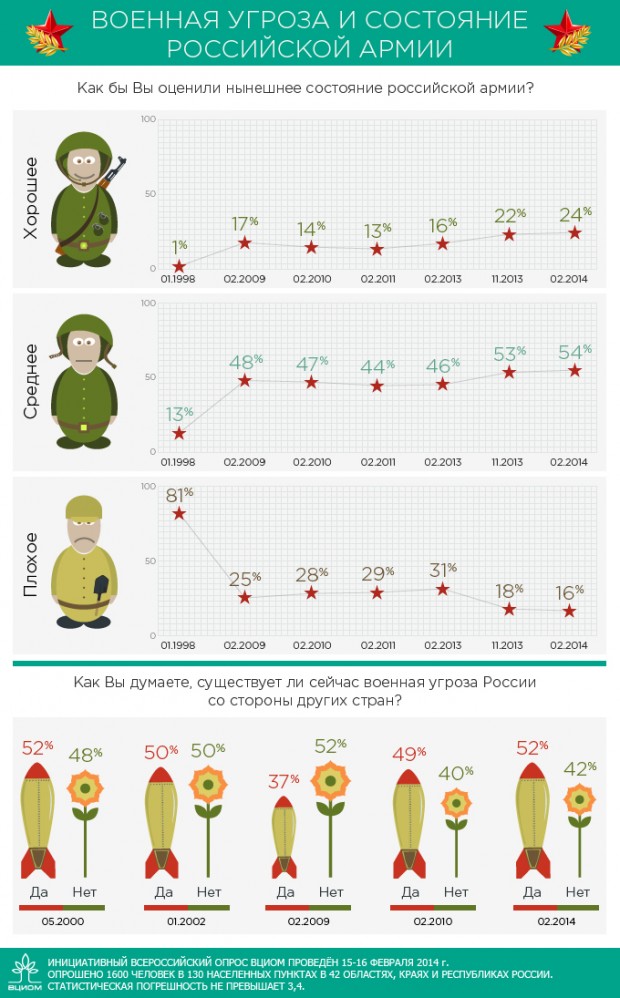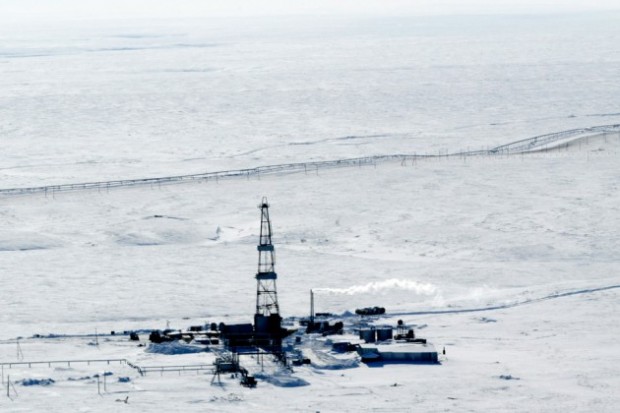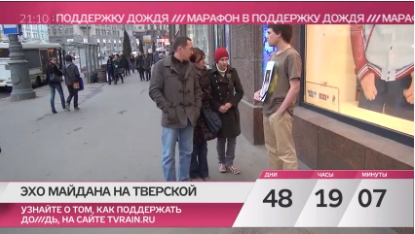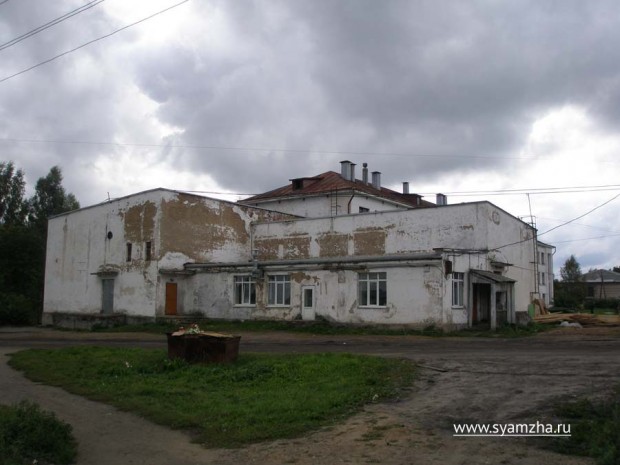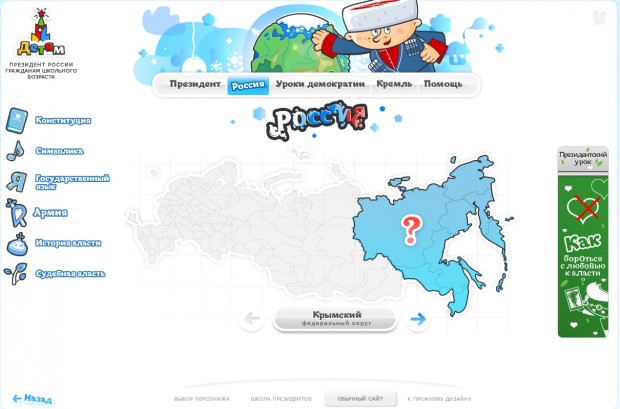Updated Daily. Russians protesting Putin’s forcible annexation of Crimea are experiencing a backlash from conservative officials and activists and a campaign of xenophobia and hatred for dissenters has been unleashed. In recent weeks, Dmitry Kiselyov, Russia’s chief TV propagandist, has reminded us that only Russia can “reduce America to radiocative ash.” Conservative Sen. Oleg Panteleyev, included on the US sanctions list for his advocacy of the invasion of the Crimea, has ranted in the parliament about “gays” and “Maidan” at the famous Taganka Theater. Prof. Andrei Zubov has been dismissed for his criticism of the Crimean war from the prestigious Moscow Institute for International Relations, and a newspaper has been confiscated for publishing a Ukrainian academic’s appeal against war, even as another scholar, Vyacheslav Nikonov, engaged in a high-profile anti-American rant in response to criticism from former US ambassador Michael McFaul. Lev Shlosberg, a Pskov legislator who sounded the alarm early about the invasion of the Crimea by the Pskov 76th Airborne Assault Troops, has been fighting off claims by the Pskov Region governor that he and other anti-war critics are “fifth columnists” and “traitors” in the legislature.
Go here, here and here for past issues of our weekly. This blog will chart throughout the week what’s happening in Russia.
Please help The Interpreter to continue providing this valuable information service by making a donation towards our costs.
April 4, 2014
2035 GMT: The “post-reset anti-Putin narrative”:
Great to meet the strong & brave young women from #PussyRiot, who refuse to let their voices be silenced in #Russia. pic.twitter.com/7JVkZ9TYx3
— Hillary Clinton (@HillaryClinton) April 4, 2014
1943 GMT: Ilya Zaslavsky, Robert Bosch Fellow, Russia and Eurasia Programme at Chatham House, says that ” more than 6,000 German businesses with €76 billion of turnover are interlinked with Russia” and that Europe remains heavily dependent on Russia for gas:
“Despite two major gas transit crises instigated by Gazprom in Ukraine in 2006 and 2009, the EU has been slow in reducing the dependency of eastern European countries on Russian gas supply. As a recent analysis by Russian newspaper Kommersant shows, in 2013 Bulgaria and Slovakia remained over 90 per cent dependent in their imports on Gazprom’s flows via Ukraine while most of their neighbours are over 60 per cent dependent. Although the European Commission has assisted with a limited development of interconnectors and storages that would help reduce dependence, these states feel this is not enough. This vulnerability allowed Gazprom to prevail in bilateral negotiations with each state at the expense of pan-European market liberalizing policies.”
He reminds us to keep an eye on the South Stream gas pipeline deal, still not decided, featuring Stroitransgaz, owned by Gennady Timchenko, a businessman subject to the recent US sanctions. He concludes, “With Russia now assuming a more assertive stance, European politicians need to switch from thinking about short-term economic gain to what is needed to protect democracy and national security.”
Fascinating… How dependent each European nation is on Russia for oil, gas & coal http://t.co/uHppx1p8yD See table -> pic.twitter.com/EceGRI5HXj
— Lang Banks, WWF (@LangBanks) March 22, 2014
#Lithuania 100% dependent on single supplier of natural gas, forced to pay a political price | @SenateEnergy hearing pic.twitter.com/v2jpp8zzUL
— Rolandas Kacinskas (@RKacinskas) March 25, 2014
1943 GMT: Robert Coalson, a journalist at Radio Free Europe/Radio Liberty, tried watching Russian state TV all day — and came away thinking “Russia must be saved” after seeing all the terrible scenes. The language is overwrought and the incitement intense:
“In the early evening, there is an hourlong, nonjournalistic talk show called “On Air Live” devoted to events in Ukraine. A range of guests representing positions from the rabidly anti-Maidan to the extremely rabidly anti-Maidan argued on the theme of “the morals of the new Ukrainian elite” while behind them large screens played loops of the burning tires of the Kyiv demonstrations last month.
In passing we learn such “facts” as that former Ukrainian Prime Minister Yulia Tymoshenko finds domestic and foreign enemies “no worse than Stalin did.” That the radical nationalist Right Sector activists are “her storm troopers.” That “hundreds were killed, thousands were crippled, and downtown Kyiv was destroyed” by the Maidan protests.”
Here’s a typical broadcast and RFE/RL’s translation:
“A major scandal in Odessa. Supporters of the new government held a public demonstration in the center of the city. The press secretary of the local office of [Vitali Klitschko’s] UDAR party brazenly burned several St. George ribbons in the eternal flame. And she was not punished. At the same time in Odessa, and also in Kharkiv and Donetsk were reported more detentions and criminal investigations of local residents who liberated government buildings from Nazi groups and who disarmed the outsider Banderites.”
Russian sources often refer to Ukrainian activists as followers of controversial World War II-era Ukrainian nationalist Stepan Bandera who both fought the Soviets and collaborated with the Nazis.
1938 GMT: Russian public opinion is largely shaped by state-controlled television. The Financial Times has an article about what Russians are seeing on TV — which makes them fear and hate the new Kiev government as “fascists.”
“Donetsk is on the verge of a humanitarian catastrophe. The new Ukrainian regime, backed by nationalist extremists, is withholding funds from the country’s Russian-speaking east, leaving coal miners with nothing to feed their children.
That, at least, is what the Russian public was told about Ukraine earlier this week when they tuned into the main evening news broadcast on Russia’s state-run Channel One. They were also treated to other reports about Ukrainian nationalists desecrating monuments to Soviet war heroes, forced conscription of hungry men into the Ukrainian army, and residents of Sevastopol rushing to apply for Russian passports.”
Here’s a pro-Russian rally on 22 March:
1915 GMT: As we reported 2 April (below), a poll claiming that 52% of Russians were willing to go to war themselves against Ukraine appeared to be fake. But another poll published at Levada.ru does ask the question about support for potential war. A survey made from 21-24 March with a sample of 1,603 people from 45 regions found that 75% of Russians would support the Kremlin if a military conflict broke out between Russia and Ukraine. But perhaps that’s because only 23% believed that war was imminent; 53% thought it was unlikely and 13% were convinced it would never happen. Even so, as Alexei Grazhdankin, deputy director of the Levada Center, these numbers were “depressing.”
In addition, Levada found that 77% of those polled thought the Ukrainian government was to blame for the tensions between the countries, and only 3% thought Russia was to blame; only 14% thought the current Kiev government was legitimate and 73% followed the Krelmin line that it was illegitimate.
The article on the poll at Levada.ru also reported that there were 30,000 Russian troops on the Ukrainian border according to US intelligence, and 100,000 according to the Ukrainian Defense Ministry. It also quotes Deputy Defense Minister Anatoly Antonov that Russia “observed all international agreements on the limit of troops in the regions bordering Ukraine.”
“Antonov also reported that in the last month, Russia was visited by eight inspections groups, and twice Ukrainian military inspected Russian objectives and regions of deployment along the Russian-Ukrainian border. Inspectors were also received from the US, Canada, Germany, France, Switzerland, Poland, Latvia, Estonia and Finland. No one reported that they had any doubts or alarms.”
But that claim is completely at odds with the alarms NATO sounded 23 March about the build-up of Russian forces on the Ukrainian border, and again on 3 April.
1910 GMT: This joke has been making the rounds in a number of formats — on Twitter, on Facebook, or Instagram.
М. задержали на митинге, пишут протокол: – Против чего вышли?- Против идиотизма, войны и цензуры. Записали: выступали против гос.политики РФ
— Tetyana Yampolska (@Poll_in) March 23, 2014
Translation: @Poll_in M. was detained at a rally, and they [the police] are writing up the report: “What did you demonstrate against?” “Against idiotism, war, and censorship”; They wrote down: “demonstrated against state policy.”
1800 GMT: From the look of the stark photographs taken by Russian blogger Ilya Varlamov on a recent reporting trip, Tver might be the next candidate to see a movement to “annex” to that mythical great Russia, as in other poor regions of Russia (see Paul Goble’s Windows on Eurasia today). The town, once the capital of a powerful medieval state, is now a sea of mud and garbage, without even paved roads and workers still changing street-car tracks by hand as in the Soviet era.
Even so, people’s creativity shines through. Varlamov explains that he always covers locations with first “the bad” and then “the good,” so stay tuned tomorrow for more uplifting shots.
0300 GMT: Russian intellectuals are aghast at a tendentious article, “About a Certain False Analogy and Its Russian Advocate,” justifying the firing of a prominent academic for criticism of Putin’s forcible annexation of the Crimea. The article was published in the pro-government Izvestiya by Andranik Migranyan, head of the Kremlin-funded Institute for Democracy and Cooperation in New York (with offices in Moscow and Paris as well), founded by Anatoly Kucherena, the lawyer close to Russian intelligence who later became Edward Snowden’s attorney. The Institute was set up in 2008 to counter human rights criticism of Russia from Western media and NGOs, although unlike its counterparts in Russia, it isn’t in danger of prosecution under any “foreign agents’ act” — because FARA and Putin’s law are completely different.
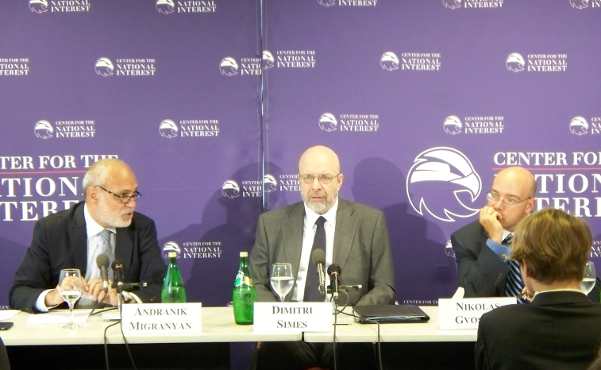
Andranik Migranyan (L) at the Center for National Interest debating Pussy Riot with Dimitri Simes (CNI) and (R) Nikolas Gvosdev, Professor of National Security Studies at the Naval War College
Migranyan was beside himself with the outcry at home and abroad over the firing of Prof. Andrei Zubov of the prestigious Moscow State Institute for International Relations (MGIMO) for an article comparing Hitler’s Anschluss of Austria with Putin’s forcible annexation of the Ukraine — and fights back. He ignores the fact that none other than former Secretary of State Hilary Clinton made the same analogy, not to mention many others such as Soviet-era political prisoner and writer Victor Davidoff — but instead of discounting any comparison on grounds of magnitude, he digs himself into a hole. The problem is simply that Zubov should have made a more “subtle” historical point, he says:
In order to depict the Russian authorities as offspring of hell, Zubov tries to make some dubious parallels of Russian actions in the Crimea with the policy of Adolph Hitler on the eve of World War II. I think that a historian, and also one loaded with degrees, should be more careful in his evaluations of what indeed happened in German history. We must distinguish the Hitler before 1939 from the Hitler after 1939, and separate the wheat from the chaff. The fact is that while Hitler was involved in gathering lands, then — as Zubov himself admits — he would be famous only for the fact that without a single drop of blood, he united Germany with Austria, the Sudetenland [parts of Czechoslovakia] with Germany and the Memelland [Klaipeda Region] with Germany, essentially completing what Bismarck failed to do. If Hitler had stopped there, then he would have remained in the history of his country a politician of the highest class.
However, he went down in history as the greatest evil-doer only because he set for himself and Germany the insane ideas of world domination, declaring entire peoples as inferior, trying to claim the superiority of the Aryan race over others less worthy, and setting his goal to destroy tens of millions Slavs, Jews, Roma and other ethnic groups. It was these insane ideas that led to the sad end of both Hitler and all of Germany. And all of that had no relationship to the unification of Germany and the gathering of the German lands. It must be said that not he alone was a hero of gathering lands. Besides Bismarck and Kohl, one other person must be noted who went down in history in that respect, and whose monument is carved on Mt. Rushmore in South Dakota. That is President Abraham Lincoln, glorified in the famous monument above all for the reason that he did not allow the American state to fall apart, and at the price of hundreds of thousands of victims and unprecedented suffering preserved its integrity. And it is no secret to anyone that the gatherers of lands in the history of every nation occupy an honored, important place in the national pantheon of heroes.
Migranyan then goes on to give a paranoid if sweeping panorama of Russia’s woes; basically, we’re to understand the collapse of the Soviet Union as a kind of modern Versailles, where Russia was humiliated as Germany was in 1919 after World War I, setting up the next world war. Worse, we’re to believe that Western policy was to deliberately dismember Russia and “liquidate it as a subject of world policy, as not only a global but a serious regional power.” Then, “like a petty pick-pocket or purse-snatcher,” the West set its goal to cruelly extended NATO to bring in the Baltics “and then Ukraine and Georgia” — although of course, this never happend — and (gasp) to bring about “as Brzezinski wrote in 1993, geopolitical pluralism in the post-Soviet space.”
Of course, the limp Western response to Putin’s actual land grab isn’t enough to placate Migranyan — he goes on to advance a theory of “5 million Russians” he believes are missing from the Ukrainian population not through labor migration or Chernobyl or poor Soviet life expectancy but through “forced Ukrainianization” and suppression of the Russian language — claims which no international bodies or regional human rights groups have validated.
Migranyan follows the old Soviet script from the 1970s and 1980s, when exchanges increased but Russian apparatchiks challenged critics of the GULAG or the punished peoples by invoking the lynching of blacks. Then on the principle of other Russian propaganda staple — “if we’re both wrong then I’m right” — Migranyan makes a large table of all the academics in the United States that he believes have been fired for expressing their opinion — to make the point that no one can possibly criticize the firing of Zubov because Americans are guilty of no less terrible chills on academic freedom. Of course, free speech advocates might want to contest some of the very US cases he includes for the same reasons they’d object to Zubov’s dismissal, but most of the cases are quite different. They involve statements that were perceived by their university communities as wrong because they advocated the suppression of others’ rights — i.e. equality of women and LGBT or reproductive rights or gun rights — not opinions on historical events.
David Guth, for example, the University of Kansas professor included in Migranyan’s table, tweeted angrily that the NRA was responsible for the shooting rampage in the Washington Navy Yard and was put on temporary administrative leave.
@FakeMIDRF, a parody of the Russian Foreign Ministry on Twitter, had an idea, when MGIMO reprinted Migranyan’s article on its website: “In the name of restoring historical justice, the statue “Hitler in 1938” will be placed before the MGIMO building.
Во имя восстановления исторической справедливости перед зданием МГИМО будет установлен памятник “Гитлер в 1938 году” http://t.co/25eUqy3EEf — Мuд Роисси (@Fake_MIDRF) April 3, 2014
April 3, 2014
1820 GMT: Pavel Durov, founder of the popular Russian social network VKontakte, is now explaining to Russian Forbes that his announcement of departure from the company earlier this week was an April Fool’s Day joke. On his VKontakte page this afternoon, the entrepreneur wrote “Congratulations on the past holiday to all those who decided that I really willingly resigned.” But Russian Forbes reports that according to two sources close to VKontakte’s board of directors, yesterday Durov met with Ilya Shcherbovich, president of United Capital Partners (UCP), who owns 48% of VKontakte. The majority (51.99%) of the shares are held by Alisher Usmanov of Mail.ru. None of the companies had any comment. Then late tonight Durov wrote again on his wall
“In recent days I was able to learn a lot about what could happen at VKontakte after my departure. I saw clearly that my resignation at that complicated moment would be a betrayal of everything that we defended in the last 7 years. It was a very casual and very destructive path. Thanks to those who supported me on 1 April. With that choice of a day, I tried to hint that the decision about the departure was not final and was necessary to gather information. I don’t intend to leave anywhere — and I remain general director of VKontakte.”
1709 GMT: Remember those stray dogs wandering around the grounds of the Sochi Olympics complex? The large, hasty and destructive construction sites and damage to the environment seemed to add to their numbers. Russian officials were furious at Western journalists for covering the dogs and other negative features of the Games. In February, we reported that Russian billionaire Oleg Deripaska said he would fund a shelter for the animals. Now he has gone one better and even sponsored adoption and transfer of the mutts to America, the Moscow Times has reported:
The six female and four male pooches landed in Washington, D.C., and posed for photographers before being taken to the Washington Animal Rescue League to await their new homes. The charity said the presence of the celebrity Sochi animals will also help other pets in need of new owners. “These can be international ambassadors, these Sochi dogs, for dogs and cats that need a second chance,” Bob Ramin, the Washington rescue league’s CEO, told NBC television on Thursday. “That’s really going to be great, because people are going to come and want to see the Sochi animals, but we are going to say: ‘Look at everybody else here that needs a home.'”
Deripaska’s charity, called “PovoDog” says it has rescued more than 200 dogs from Sochi and found new homes for 50 of them; athletes took home some of them. The oligarch says he was moved to get involved in animal rescue by the memory of his first dog, found on the street of the tiny village where he grew up. Deripaska may have also been hoping for some good publicity, as his empire has fallen on hard times after dramatic losses of his riches in the last decade. He has also struggled to overcome his humiliation by Putin in Pikalyovo in 2009, when the Russian leader made an example of oligarchic selfishness with workers protesting unpaid wages at Deripaska’s factory.
To be sure, Deripaska is still on the Forbes list of billionaires, and ingratiated himself to the Putin regime by defending Sochi’s outrageous costs and claiming they were only half of the $50 billion exposed by the Russian opposition, using corporate reports. Deripaska himself spent $1.38 billion in Sochi building the Olympic village, remodeling the airport and handling other contracts; he still hopes to sell condos there. Meanwhile, it is far easier to get dogs adopted and moved to the United States than human orphans. The US Commission on Security and Cooperation in Europe, which monitors the Helsinki Accords on human rights, says the number of US-Russian adoptions underway but frozen by Russia’s sudden law in 2012 against foreign adoptions is approximately 250. The so-called “Dima Yakovlev” law barring foreign adoptive parents for Russians was widely seen as revenge for the Magnitsky Act.
0647 GMT: While the S&P 500 is surfing record highs, the Russian MICEX continues to struggle. It is down for the 2nd day in a row, losing .75% of its value again today:
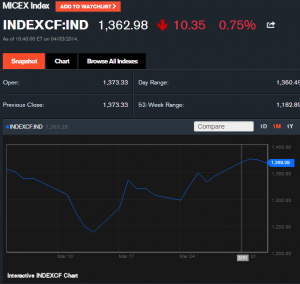 The ruble is down another .28% against the dollar. Today Bloomberg took a look at Gazprom, the Russian gas giant, to see where the problems with that company lie:
The ruble is down another .28% against the dollar. Today Bloomberg took a look at Gazprom, the Russian gas giant, to see where the problems with that company lie:
Back in April 2007, in the midst of the greatest commodities rally on record, OAO Gazprom’s deputy chief executive officer, Alexander Medvedev, was talking big. Russia’s natural-gas export monopoly aspired to be the world’s largest company, he said while offering up a prediction: its market value would quadruple to $1 trillion in as little as seven years. Medvedev was off by $910 billion. Since he made that forecast, no company among the world’s top 5,000 has suffered a bigger collapse in market capitalization than Gazprom, a $154 billion plunge that’s become emblematic of the malaise that has overtaken President Vladimir Putin’s economy. The state-run company has tumbled three straight years in the stock market as it stepped up spending on everything from the Olympic games in Sochi to projects in Siberia. “Gazprom is a champion in value destruction,” Ian Hague, founding partner of New York-based Firebird Management LLC, which manages $1.3 billion of assets including Russian stocks, said by phone April 2. “It’s not just Gazprom that failed to achieve its goal of increasing market capitalization. It’s Russia who failed. It failed to create an environment where state-owned companies would function as shareholder-owned entities.”
The bottom line – Russia’s economy was weak before this incident occurred. Now, it’s even weaker.
0330 GMT: Twitter lit up yesterday with numerous reports of NASA suspending cooperation with Russia in conjunction with US sanctions against Moscow over the annexation of the Crimea.
Huge. NASA is suspending relations with Russia’s space agency. NASA told me they will release a statement soon. http://t.co/2gMXqJgFKP — Amanda Wills (@AmandaWills) April 2, 2014
NASA Suspends Cooperation With #Russia Over Crimea http://t.co/Zt6WyYofRO #news — The Moscow Times (@MoscowTimes) April 3, 2014
But NASA later cautioned in a message on G+ that it was suspending only “some NASA activities” — and is driven by more than just Russia’s actions:
“Given Russia’s ongoing violation of Ukraine’s sovereignty and territorial integrity, NASA is suspending the majority of its ongoing engagements with the Russian Federation. NASA and Roscosmos will, however, continue to work together to maintain safe and continuous operation of the International Space Station. NASA is laser focused on a plan to return human spaceflight launches to American soil, and end our reliance on Russia to get into space. This has been a top priority of the Obama Administration’s for the past five years, and had our plan been fully funded, we would have returned American human spaceflight launches – and the jobs they support – back to the United States next year. With the reduced level of funding approved by Congress, we’re now looking at launching from U.S. soil in 2017. The choice here is between fully funding the plan to bring space launches back to America or continuing to send millions of dollars to the Russians. It’s that simple. The Obama Administration chooses to invest in America – and we are hopeful that Congress will do the same.”
Just 9 days ago on 26 March — after the annexation was formalized by Putin on 17 March — NASA took part in a joint launch of the Soyuz TMA-12M rocket from the Baikonur Cosmodrome in Kazakhstan carrying Expedition 39 Soyuz Commander Alexander Skvortsov of the Russian Federal Space Agency (Roscosmos), Flight Engineer Steven Swanson of NASA, and Flight Engineer Oleg Artemyev of Roscosmos to the International Space Station. Presumably they’ll get along.
0330 GMT: Yesterday the European Parliament passed a resolution similar to the US Magnitsky Act legislated by the US Congress which sanctions those related to the cover-up of a corrupt tax case investigated by Sergei Magnitsky, and those responsible for his torture and death in pre-trial detention.
“The resolution calls for sanctions be imposed as a first step on 32 individuals, including 16 officials that have already been sanctioned by the U.S. Government under the Sergei Magnitsky Rule of Law Accountability Act of 2012. The most senior Russian government officials on the EU sanctions list, who are not on the public part of the U.S. list, are Russian Deputy General Prosecutor Victor Grin, and Head of FSB Financial Counter-Intelligence Department Victor Voronin. “Today’s adoption by the European Parliament of the Resolution on the common visa restrictions for Russian officials involved in the Sergei Magnitsky case is an important signal into two directions. First of all to the European Member States, which– despite repeated resolutions by the European Parliament– have not moved forward on the Magnitsky sanctions list. On the other hand, to the Russian officials mentioned on the list, who should have understood by now that the human rights violations committed against Sergei Magnitsky will not go unnoticed,” said Chair of the Human Rights Subcommittee of the European Parliament Barbara Lochbihler.”
While the resolution still has to be accepted and implemented by the European Council, it is a good start in ending the impunity of those responsible for grave human rights violations and corrupt business practices. New investigative reporting has been done showing how Magnitsky’s case was not the first; see The Silent Looting of Russia.
European Parliament just ADOPTED the Magnitsky list-32 Russian names- no objections!!!! A small prick in the bubble of impunity in Russia — Bill Browder (@Billbrowder) April 2, 2014
BIG day for human rights — Euro Parliament to freeze assets & deny travel visas to those who killed Sergei Magnitsky http://t.co/kx127Gg9x5 — John Wood (@johnwoodRTR) April 2, 2014
0300 GMT: Pussy Riot’s Nadezhda Tolokonnikova and Mariya Alyokhina spoke in the European Parliament on Monday. Here’s a translation by The Interpreter of their statement:
“1. There is a threat of an iron curtain. Putin wants an iron curtain to descend between Europe and Russia again. He is doing everything to make it happen. From the TV screens, unbridled anti-Western propaganda is waged of the Soviet type as in the Cold War era.
2. No to the curtain. The residents of Russia do not want an iron curtain. It is needed by Putin, his bureaucrats and oligarchs so that they can shamelessly fool the people with propaganda and pump out gas-and-oil cash. Everyone around are enemies. Except Putin. Who allows his friends to receive up to 138 million rubles a month just in legal salaries. For example, Igor Sechin. Putin and his team live by the Hegelian principle: ‘If the facts contradict my theory, the worse for the facts.” All the media of Russia seized by Putin’s team is built on this principle.
3. Yes, extension of the sanctions against Putin’s bureaucrats and oligarchs. The European Union must be concerned by harsh sanctions regarding the Russian elite, responsible for the unleashing of aggression in Ukraine and corruption. The list of people subject to sanctions must be extended.
4. No to sanctions against Russia. Sanctions should not affect the population of Russia. Only members of Putin’s elite should go in the sanctions list, who are responsible for aggression in the Crimea and the plundering of Russia.
5. Yes — increase contacts between Russia and Europe and ease the visa regimen for Russians. We must not let Putin build an iron curtain, which is profitable for him. More cultural, social, and human rights contacts between Russia and Western countries. We advocate simplifying the visa regimen with the EU for ordinary citizens of Russia — they must have a chance to visit Europe and see with their own eyes, and not rely on propaganda.
6. Help to residents of the Crimea by Europe. Residents of the Crimea have landed in a difficult legal situation regarding crossing a region under Russian control, and can encounter problems in getting visas to countries of Europe. But if the EU turns away from them, the Crimea will remain alone with Putin’s oligarchs and thieves on the EU’s sanctions list, which will build property on the natural reserves of the Crimean coast and throw in jail those who protest against such treatment of the Crimea’s nature.
7. We propose expanding the sanctions list regarding Putin’s elite, and above all we want to see the following people in the list:
o Dmitry Medvedev, who for a long time was viewed by the West and some in Russia as a representative of the ‘liberal wing’ of the Russian government but who in fact is an odious and hypocritical executor of Putin’s instructions o Igor Sechin, who is de-facto the head of Russia’s raw-materials complex, the head of Rosneft and patron of the power bloc around Putin
o Roman Abramovich, a key oligarch in Putin’s inner circle, a large portion of whose shares are at this moment in the West
o Viktor Vekselberg, an oligarch from the circle of Putin and Medvedev, patronizing the “high tech project” sector in the Russian economy, the Skolkovo project and personally responsible for the ineffectiveness and embezzlement of money in these sectors.”
April 2, 2014
2353 GMT: The way Russians perceive the state of their military and the threat of foreign countries tell us about what rationales they may have to support war on neighbors. The Russian Public Opinion Research Center (VTsIOM) has an infographic, last updated in February 2014, that tells the story of their research in recent years:
The chart, titled “Military Threat and State of Russian Army” shows on the top three levels the answers to the question “How would you evaluate the current state of the Russian army?,” with those replying “Good,” “Average” or “Bad.” In the year 2014, 24% say “good” and 54% say “average,” and the number of those who say “bad” has declined to 16% On the fourth level, the contrasting missile and flower diagrams show the answers to the question, “What do you think, is there a military threat to Russia now from neighboring countries?” In 2014, the perception of “yes” rose to 52%, up from its low in 2009 of 37%.
2314 GMT: LifeNews, a Russian TV station close to Russian law-enforcement and intelligence known for its sensational programs, has promoted RT.com’s broadcast of a program featuring former CIA officer Scott Rickard:
Бывший агент спецслужб США заявил, что США потратили 20 лет и несколько миллиардов долларов на переворот на Украине pic.twitter.com/A4DIxNbuA4— LIFENEWS (@lifenews_ru) March 29, 2014
Translation: Former intelligence agent stated that the USA spent 20 years and several billion dollars on the coup in Ukraine.
Translation of headline: Secret Becomes Open – Former USA Intelligence Agent Scott Rickard
The “$5 billion spent on the fascist coup in Ukraine” has been a widespread staple of Russian propaganda in recent weeks, and as it has been repeatedly challenged, the Kremlin’s propagandists have upped the ante by trying to bolster it with American “experts.” It’s also spread the “$5 billion” meme more widely through many Western leftist groups and bloggers following the Moscow line. The popular site Politfact.org run by the Tampa Bay Times has given the “$5 Billion on Ukraine Anti-Government Riots” story its “Pants on Fire” badge, i.e. declared it as basically a lie. Politfact’s entry debunks the charge by carefully breaking down actual US aid to Ukraine, which does total $5 billion, but was given over a period of 20 years and didn’t go to “staging riots”:
“Since 1992, the government has spent about $5.1 billion to support democracy-building programs in Ukraine, Thompson said, with money flowing mostly from the Department of State via U.S. Agency for International Development, as well as the departments of Defense, Energy, Agriculture and others. The United States does this with hundreds of other countries. About $2.4 billion went to programs promoting peace and security, which could include military assistance, border security, human trafficking issues, international narcotics abatement and law enforcement interdiction, Thompson said. More money went to categories with the objectives of “governing justly and democratically” ($800 million), “investing in people” ($400 million), economic growth ($1.1 billion), and humanitarian assistance ($300 million).”
Politfact.org doesn’t delve into more specifics about democracy-building aid, but we could point out that the US Congress supervises this assistance, through USAID and funds such as the National Endowment for Democracy. The reports for 2011 and 2012 show transparently where the money goes in Ukraine — by law such US foundations cannot support political parties overseas, and none of the grants go to extremist groups using or advocating violence like Right Sector. A lot of the aid of this nature goes to US consultants and conference costs for training. The most that could be said about some of the small grants to various NGOs in Ukraine is that some civic educational activity as well citizen journalism were sustained by it. That has proved essential both to holding the new Kiev government to account as well as telling the real story behind the Russian invasion of Ukraine.
2300 GMT: Manuel Ochsenreiter, a regular commentator on RT.com, the Kremlin’s propaganda channel, has been exposed as a neo-Nazi propagandist by The Interpreter’s Adam Holland. But RT’s editor-in-chief Margarita Simonyan continues to promote him on Twitter. In a broadcast posted to Youtube, Ochsenreiter comments on a statement made by the EU’s Catherine Ashton calling on the Ukrainian ultra-right group Right Sector to end violence: Our translation of the summary:
“Extremist actions of the Ukraine movement Right Sector forces its recent allies to change their position. The West has come out with criticism of the organization and called on it not to allow violence. However journalist Manual Ochsenreiter believes that in this situation, the EU is worried about its own reputation and not the growth of extremism in Ukraine.”
The fact is the EU never backed the Right Sector as RT.com claims. The Kremlin and some English-language sources echoing its propaganda in the West have tried to make something of the fact that the EU funded some Ukrainian NGOs involved in EuroMaidan. But there is no evidence that these funds sponsored violence or went to extremist groups.
1943 GMT: As its isolation grows from EU and US sanctions, Russia is shoring up its relations with Iran, Reuters reports:
“Iran and Russia have made progress towards an oil-for-goods deal sources said would be worth up to $20 billion, which would enable Tehran to boost vital energy exports in defiance of Western sanctions, people familiar with the negotiations told Reuters.”
The White House objected saying the deal would raise “serious concerns” and would be “inconsistent” with nuclear talks between Iran and the international community. In September 2013, at a time when the Obama Administration was discussing military action against Syria over chemical war attacks, we reported that Putin went to Teheran and held talks with Iran’s leadership regarding arms purchases. Are these now being discussed again? According to Reuters today:
The Iranian official said missiles would also be part of the deal, together with Russia providing assistance with building two nuclear plants in Iran. The Iranian official did not produce any documentation, and Russian government officials declined to comment.
1920 GMT: After the US and EU declared sanctions against Russia over Putin’s forcible annexation of the Crimea, the talk was mainly about how the sanctions were hurting. Just yesterday when JPMorgan blocked a transfer to Bank Rossiya, the Russian Foreign ministry howled. The payment was from the Russian Embassy in Astana, Kazakhstan to Sogaz, an insurance company partially owned by Bank Rossiya, which is the sole entity in the US Treasury Department’s sanctions list as a business — the rest are individuals, including Yuri Kovalchuk, Bank Rossiya’s largest shareholder. The Foreign Ministry said (in our translation) the move was “absolutely unacceptable, illegal and absurd” and only did a “disservice” (literally, “a bear’s favor”) to the US Administration. The Foreign Ministry also made a threat:
“Washington must understand: any hostile actions against Russian diplomatic missions not only represent the most egregious violation of international law, they are fraught with retaliatory measures which will inevitably reflect on the work of embassies and general consulates of the USA in Russia.”
The sanctions seemed to be working, but there were quickly some exceptions made. As we reported 22 March, after Visa and MasterCard blocked transactions with Bank Rossiya, they wound up retreating and resuming services after objections from Russian officials. And now there is concern that the sanctions can only go so far before they cause whiplash. An article by Clifford Krauss published 28 March in the New York Times titled “Crackdown on Russia Could Hurt Western Oil” lays out the concerns:
“‘Everything is on the table,’ said David L. Goldwyn, the State Department’s coordinator for international energy affairs during President Obama’s first term. ‘The calculus has to be who will be hurt most, us or them, if sanctions are put in place.’ As the heart of the Russian economy, the energy sector — led by state oil companies like Gazprom, Lukoil and Rosneft — would be a natural focus for pressure from the United States and its allies. Oil and petroleum products represent more than two-thirds of Russian export earnings, and they finance just over half of the federal budget. But the rub is that the interests of the Russian companies — many led by powerful allies of President Vladimir V. Putin — are increasingly entwined with those of American and European corporations, with which they share critical projects.”
Among these are Exxon Mobil, which partners with Rosneft in the Arctic, and other US and European companies:
“Just last year, Mr. Putin gave Mr. Tillerson [CEO of Exxon Mobil] the Order of Friendship award as a token of Russia’s gratitude to the company. Other Western oil companies also face potential difficulties in Russia. BP has sold many of its Russian holdings, but it still holds a 19.6 percent stake in Rosneft, which contributed $1 billion in profit to BP in the fourth quarter of last year. Eni of Italy and Statoil of Norway also coordinate with Rosneft in Arctic exploration. Eni and other Western companies are heavily involved in plans by Gazprom to build a major gas pipeline from Russia to Europe, but that project is now in doubt, according to Eni’s chief executive, Paolo Scaroni.”
1639 GMT: Last week we covered a story in the Russian media which blamed negative world attitudes toward Russia on Russia’s own independent media, such as the beleaguered TV Rain, the last independent TV station now fighting for its life. Of course, most foreigners don’t read Russian, but that doesn’t stop conservatives from believing that those who report negative features of Russia accurately are at fault for negative perceptions of Russia’s aggressive actions on the world stage. Now a Russian website has essentially created a “hit list” of independent web sites in Russia that are the most “anti-Russian,” i.e. critical. Some of them have already been ordered blocked by Roskomnadzor, the state censor, although Russians are using circumvention software to read them anyway. RFE/RL has the report:
The 20 most anti-Russian sites according to an algorithm created by a pro-Kremlin website http://t.co/UMtb32dZuT pic.twitter.com/TB7SfLXmdT — RFE/RL (@RFERL) April 2, 2014
1618 GMT: As we reported last week, a poll by FOM [Public Opinion Foundation] helps explain why fake polls and disinformation stories can have resonance in Russia — 62% of those polled trust the state media; 54% of those surveyed believe it is okay for the Russian government to distort information in state interests regarding certain problems and issues; 72% think it is alright for the media to remain silent in the interests of the state. The BBC referenced the poll yesterday in a feature on Dmitry Kisilyev, Russia’s chief propagandist, who has been included in the European Union’s sanctions list. He is described as follows — by a man who himself has been active in Kremlin propaganda for years:
According to former Kremlin insider and political analyst Gleb Pavlovskiy, Kiselev and his state media colleagues are generators of “Russophobia”. They are a “machine churning out the black myth of Russia as an enemy of Europe and civilisation”, Mr Pavlovskiy said.
But even before the invasion of the Crimea, global attitudes toward Russia were poor, based on other actions at home and abroad by the Putin regime.
A sick society: over half of Russians believe it is appropriate to “distort information” in interest of state http://t.co/97yHOJrTwv — Jamie Kirchick (@jkirchick) April 2, 2014
1606 GMT: The number of Russians whose attitude to the U.S. is either “bad” or “very bad” has grown to 56 percent this month from 39 percent in March 2013, according to a survey published Tuesday by Levada Center, an independent pollster, Moscow Times reports.
“The number of those who look negatively upon the European Union rose to 41 percent from 25 percent over the same period. The number of respondents who said they view the U.S. positively has dropped to 34 percent this month from 48 percent in March 2013 and from 56 percent a decade ago. The number of those who see the EU in a positive or mostly positive light has decreased to 45 percent this month from 58 percent a year ago and from 77 percent in 2004.”
1530 GMT: We haven’t found a credible poll that asks outright whether Russians are prepared to have troops invade other countries — and send their children to war and endure hardships themselves as the poll reported earlier claims (it appears to be a fake). But the Levada Center, a reputable polling agency in Moscow, has done other polls on Russians’ attitudes, such as one published 31 March, with these findings:
Do you consider the current government in Ukraine legitimate? Definitely yes 3% Mainly yes – 11% Mainly no – 30% Definitely no – 43% Don’t know – 15% Do you think that the current worsening of relations between Russia and Ukraine will grow into a military conflict between them? Quite likely – 23% Unlikely – 53% Completely impossible – 13% Don’t know – 11% What do you think, how will the events in Ukraine most likely unfold? (Comparison of answers to polls 7-10 March and 21-24 March) Internal conflicts in Ukraine will lead to a civil war – 22% and 36% Current government in Verkhovna Rada will guarantee holding of elections and situation will normalize – 14% and 14% Russian troops will be sent to stabilize the situation in the country – 25% and 12% Interference of Russia in Ukraine’s internal affairs will lead to armed clashes between the countries with unpredictable consequences for both countries – 13% and 10% Other – <1% and 2% Don’t know – 27% and 27%
Levada found that only 42% of Russians had heard of the armed persons without insignia in the Crimea (nicknamed “little green men” by locals), and only 9% believed they were Russian troops; 53% said “they could be anyone.” Also of note — only 2% said they would demonstrate against Russian interference against Ukraine’s internal affairs and 48% said they would definitely not demonstrate.
1452 GMT: Recently, a startling poll about Russian aggression has been heavily disseminated via social media, usually posted with the comment that it is a “bombardment for the kreakl who have to breathe the same air as such people” — referencing the Russian term made out of the words kreativniy klass or “creative class” which liberal Russians use to describe themselves. I received it by email today with the title “Fwd: Fw: The Most Horrible” from a journalist — 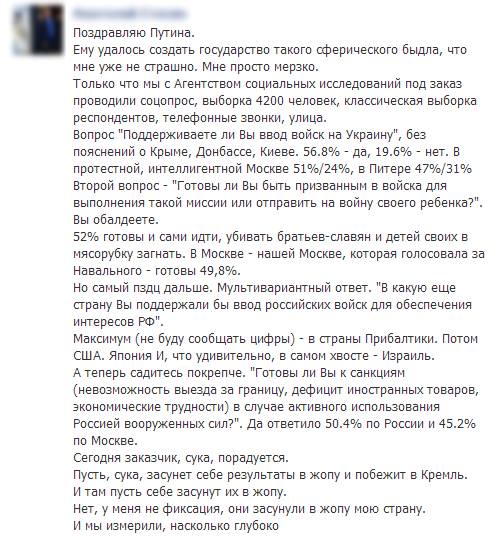 and I see lots of journalists and bloggers are passing it around vigorously. But is it fake? Here’s a translation of an excerpt by The Interpreter:
and I see lots of journalists and bloggers are passing it around vigorously. But is it fake? Here’s a translation of an excerpt by The Interpreter:
“Just now the Agency for Social Research and we completed a sociological survey, a sample of 4,200, a classic selection of respondents, telephone calls, and street [interviews]. The question: ‘Do you support the sending of forces into Ukraine” without explanations about the Crimea, Donbass, Kiev. 56.8% said yes; 19.6% said no. In protest-filled, intelligentsia Moscow, 51%/24%; in St. Petersburg 47%/31%. The second question – “Are you prepared to be drafted to fulfill such a mission or send your child to war?” You will be shocked. 52% are prepared to go themselves, to murder their brother Slavs and drive their children into a meat-grinder. In Moscow — our Moscow — which voted for Navalny — 49.8% are prepared. https://www.interpretermag.com/russia-this-week-hate-campaigns-against-anti-war-critics/ But the most f***d is further. A multiple variant question. ‘Which country would you support sending Russian forces to in order to ensure the RF [Russian Federation]’s interests?” Maximum (I won’t cite the numbers) were for the Baltic countries. Then the USA. Japan. And what was surprising, at the very end — Israel. And now make sure you’re sitting down. “Are you prepared for sanctions (impossibility to go abroad, a shortage of foreign goods, economic difficulties) in the event of an active use of Russia of armed forces?” For Russia, 50.4% replied yes, and 45.2% in Moscow.”
So the item appears to be a pollster talking about his work — what could be more persuasive? Except just who is this pollster, and why is there no link to his poll? The article at the link given posted 17 March has been posted numerous times on other sites going back to 03 March and earlier as a Google search reveals. An author’s name is sometimes cited, and there is indeed a man on Facebook who posts such anti-war material, but he hasn’t posted that particular poll. Some versions of the story link back to another man’s Facebook, but he in turn links to the Facebook page of a journalist for Pravda.ru, which is mainly pro-government. And that version of the post — like many others — has a photo with the photo blurred out (see above), and not an actual link.
Is there such an organization called “Agency for Social Research?” If so, we haven’t found one with exactly that name. The Stolitsa [Capital] Agency for Social Research has a poll on the Crimea but it asks different questions, finding that 64% of Russians consider themselves informed on the situation in the Crimea and 62% think “actions of Russian authorities are justified to protect the life and welfare of Russians from the threat of radical Ukrainian nationalists”; 88% are for the annexation. There’s a very well-known Agency for Social Information, but it’s an NGO news agency, not a pollster and its web site does not appear to have such a poll. It looks as if this wildly popular poll referencing “Russian cattle” is simply a piece of Kremlin disinformation whose purpose is to both demoralize the opposition and incite war sentiments in the population. By the way, there are also some media references to a poll in late February claiming that 70% of Russians don’t want to interfere in Ukraine’s internal affairs, but we can’t find a source for that, either.
1443 GMT: “Do Russians Want War?” This was the title and recurring line of a popular song in the Soviet era — often sung by Soviet propagandists to dodge questions about the Kremlin’s invasion of Afghanistan. It was a sort of “Where Have All the Flowers Gone?” for Russians, referencing the graves of soldiers. The song is making a come-back now on YouTube as users mash it up with pictures from the Crimean war. Here a reporter in Donetsk asking this question found that when he asked ordinary Russians and Russian-speakers whether they advocated annexation of the Crimea, they explained why they opposed it.
April 1, 2014
2050 GMT: The head of RTTV America, a shady company with direct ties to RT and RT.com, is facing up to three years in prison for tax fraud. Alana Goodman of The Washington Free Beacon reports:
RTTV America president Alexei Iazlovsky pleaded guilty to submitting false tax returns, a felony, last July. However, his role at the Russian news outlet has not been reported until now. According to his plea agreement, Iazlovsky transferred over $1 million from RTTV America, Inc. to companies controlled by his personal accountant, diverted $2.6 million in income to an undeclared bank account in Luxemburg, and filed false individual and corporate tax returns between 2002 and 2010. Iazlovsky, a Russian-born businessman who now resides in Maryland, continues to serve as president of RTTV America, according to corporate records reviewed by the Washington Free Beacon. He is also described as the company’s owner in court documents.
Goodman goes on to explore the relationship between RTTV America and RT America. While the two are separate companies, RTTV America provides services to RT America, shares an address, and at least some RT America staff members have said that they are RTTV America, Inc. employees on some tax documents. The entire investigation with additional links and documents can be read here.
1321 GMT: Pavel Durov, the Russian entrepreneur who found Russia’s most popular social network, VKontakte, announced today on his VKontakte page that he was leaving his position. In a post on his VK page illustrated by an Internet meme referencing Doug Adam’s science fiction book, Durov writes: 
“As a result of actions following the change in the composition of shareholders at VKontakte in April 2013, the freedom of action of the general director in managing the company has been significantly reduced. It becomes more and more difficult to uphold those principles which at one time were established in the foundation of our social network. Following my brother, who in the middle of last year left the post of technical director, I am removing from myself my duties as general director of VKontakte. Thanks to all the users who supported and inspired me for these 7 years. I will go on participating in the the life of VKontakte with the rights of the founder; however I am not interested in formal positions under the new conditions.”
As TV Rain reported, VKontakte’s general director had no comment on Durov’s departure, which followed a take-over of his shares by businessmen close to the Kremlin.
1321 GMT: The authors of the severe new amendments to the law on demonstrations are Aleksandr Sidyakin and Andrei Krasov of United Russia and Igor Zotov of Just Russia, TV Rain reported. The amendments call for up to five years of imprisonment for repeat violators of strict laws on rallies and pickets.
“Two sources close to the leadership of the State Duma, Vedomosti reported, that the draft law was developed with involvement of analysis of the situation in Ukraine, since Russian demonstrators were obtaining experience from Ukrainian demonstrators. The plan is not to drag out the adoption of the document. According to Vedomosti, demonstrators may be obliged to take care that they do not bring dangerous items and objects [to rallies] that may be used to create smoke, for example, automobile tires. According to the source in the leadership of the lower house of parliament, the draft calls for a fine of 50,000 rubles for creation of an interference in the work of transportation but also transport and public infrastructure. In particular, blocking of the entrance to the metro is indicated.”
Last week at a meeting with Vladimir Putin, Federation Council Sen. Andrei Klishas proposed the amendments to the law, saying that gaps in legislation led to a large number of victims in Kiev. He was disturbed that in Russia, people have been jailed dozens of times for administrative offenses related to demonstrations, but continue to violate the law. Putin said that citizens “had a choice…of lawful means and methods which they can use to express claims against the government if this is not possible other ways, including through rallies, demonstrations and processions.”
1314 GMT: Three people who staged a picket on Tverskaya St. in memory of the demonstrators killed on Maidan in Kiev were arrested in Moscow, TV Rain reported. They were taken to the police station and released after three hours.
According to OVD Info, which monitors police and demonstrations, picketers spread out 50 meters apart along Tverskaya, a main avenue in Moscow with fashionable stores and held portraits of the deceased. The picket marked 40 days since the deaths of the Maidan activists at the hands of snipers. Pussy Riot members Nadezhda Tolokonnikov and Mariya Alyokhina were in Ukraine last week and also marked the date.
0420 GMT: TV Rain, the last independent station in Russia, is fighting for its life, writes Julia Ioffe in The New Republic. After a controversy over a poll the station ran about the Leningrad Blockade recently, there were complaints, apparently official as well as unofficial, and cable operators dropped the channel. Russian liberals who take the station for granted and mainly read the blogs on the station’s Internet site were scrambling to figure out how to order the station on a cable station. TV Rain is now having a marathon and has raised more than $1.5 million, but that’s only enough to keep it on the air for a month or so. The station was also recently informed that they had to leave the building they’ve been leasing by June, and it is not known if they will be able to find a new place and keep the lights on. Although the decision to squeeze out the station likely comes from the Kremlin, on 28 March new Human Rights Ombudsperson Ella Pamfilova, appointed by the Russian parliament, stopped by to show her support.
Поддержать Дождь пришла Элла Памфилова, уполномоченный по правам человека в России: http://t.co/tCr3W6eFGh pic.twitter.com/ryyHDdPUlV — Телеканал ДОЖДЬ (@tvrain) March 28, 2014
Translation: @tvrain Ella Pamfilova, Human Rights Ombudsperson in Russia, came to support Rain.
0420 GMT: Late yesterday, three deputies of the State Duma filed amendments to the law on meetings, rallies and processions, asking to increase the punishment for unauthorized gatherings. Deputies A.G. Sidyakin, A.L. Krasov and I.L. Zotov submitted draft amendments calling for an increase in fines and periods of compulsory work and up to five years of forced labor or prison for “repeated violation of the established procedure for organization or conducting of assemblies, rallies, demonstrations, processions or pickets.” Russian opposition members fear the law will pass.
0132 GMT: Opposition leader and anti-corruption blogger Alexey Navalny, faced yet another attempt to discredit him last week. A leaks site published previously confidential material from Navalny’s legal defense, from his litigation against a libel suit over a blog post he did when he was refuting charges of corruption related to allegations of a property purchase in Montenegro. Navalny is currently under house arrest pending investigation of another case involving charges of embezzlement by him and his brother Oleg involving the cosmetics company Yves Rocher and a Russian firm.
According to the leaked documents, the lawyers tried to make the case that Navalny had “suffered severe psychological trauma” when he read an article in Lenta.ru which he said made false claims about him, was in a troubled state when he wrote a blog post refuting it, and claimed that he may suffer further stress and psychiatric disturbances. Navalny lost his libel suit in February 2014 to Konstantin Kostin, chairman of the board of the Foundation for the Development of Civil Society, and the court ruled that his blog “did not correspond to reality.”
Navalny was ordered to pay a fine for “moral damages” in the amount of 100,000. While some bloggers are still raising the issue of Navalny’s alleged “foreign property scandal,” Navalny himself has explained in great detail that a corporation was formed and his name was included when a business partner was looking for real estate, but no property was every purchased and the company is defunct. No credible evidence has been brought forward proving the contrary. Although it may come back to haunt him later, the story of Navalny’s “mental health break-down” was a three-day wonder in the Russian blogosphere, with rival blogger Oleg Kashin writing on his Facebook page:
“Thus, Navalny’s defense essentially confirms that its client has a number of severe psychiatric problems, strongly influencing the appropriateness of his behavior during stressful situations, even including a breakdown in role functions and attacks of uncontrollable anger.”
A commenter on Kashin’s blog named Alexey Tsibin responded, “Thus it is established that the future president sometimes falls into a state of incompetency. That will come in handy.” The Agora Foundation provided the legal assistance for Navalny on this case, and came up with the idea for his defense. Earlier this month, Agora’s director said that he thought the hunt for “foreign agents” was dying down, yet clearly witch-hunts continue.
Navalny’s recent efforts to register a tabloid newspaper associated with his Anti-Corruption Foundation failed after his application was rejected by authorities under the Russian press law. Roskomnadzor, the state censor, has also blocked some of the mirror sites he used to ensure readership for his blocked blog on LiveJournal.
О чем говорят омичи pic.twitter.com/7WrSMYWZxH— Alexey Navalny (@navalny) March 30, 2014
Translation: @navalny What Omsk people are saying
Translation: Newspaper Headline: Which Navalny is Better — Domesticated or Wild?
0045 GMT:The New York Times ran a portrait of Ilya Ponomarev, the only member of parliament to vote against the annexation of the Crimea, as we reported. Since then, he has taken some heat from his colleagues:
“They were whining, saying: ‘We cannot visit our houses in Italy. Where we will spend our vacations? You bastard, you didn’t vote. You will be allowed into Europe, we will not’ — stuff like that,” he said. Mr. Ponomarev, running for mayor of Novosibirsk, braced for worse from his constituents when he went home this week to campaign. “The overwhelming majority of people say that Crimea is Russia, there is no doubt,” he said. “It is a virtually unanimous opinion.”
In the end, Ponomarev had to drop his mayoral campaign in Novosibirk, where he had campaigned for days, when the opposition forces decided to just pick one candidate. He said he did not want his “no” vote to be used by the ruling United Russia party to defeat him.
Встречаюсь с жителями ул. Бориса Богаткова. Главный вопрос после ЖКХ – почему я голосовал против по Крыму. pic.twitter.com/xD2wJECdP0
— Ilya Ponomarev (@iponomarev) March 23, 2014
Translation: @iponomarev I am meeting with residents on Boris Bogatkova St. The main issue after housing – why I voted no on Crimea.
0042 GMT: Remember the fellow out in the Russian sticks who thought it would be a great joke to write from his troubled province of Vologda and ask if it could be “annexed to the Russian Federation”? He had heard about all these great things that the people of Crimea were going to get if they voted to be annexed to Russia, and he wanted the same for his province. The gag went viral and everyone was talking about it — but then the government didn’t think it was so funny.
On 17 March, the Vologda prosecutor’s office opened an investigation of the author of the vial post — Roman Romanenko, a local journalist, on charges of “extremism”.
In an article for New Times, Romanenko writes:
“For a week without stop the telephone beeped with new messages, people posted and liked the ‘appeal,” and it was cited in the press from Finland to Australia. I received an enormous amount of words of support and approval. In many regoins where the situation is apparently similar, other people’s ‘appeals’ appeared. In commentaries, the regions competed with each other as to the degree of their own state of disrepair, and one that was particularly liked was ‘Don’t Take Ulyanovsk!'”
But then Oleg Kuvshinnikov, governor of Vologda Region, wrote a complaint to the prosecutor about Romanenko’s “appeal,” asking him to verify the claims in it.
“What facts and documents do you have that prove that agriculture has collapsed?” an investigator asked him in all seriousness, and Romanenko replied — with a challenge:
“Well, here, I said, in Syamzha District they describe how a farm went bankrupt. Everything was inventoried, everybody was fired. While there was feed, the former workers by habit would come and feed the animals, then they ran out. The cows, arrested by the bailiffs, were dying of hunger, bellowing enough to be heard throughout the whole district — people in the neighboring villages couldn’t sleep. The local men got a tractor, found some hay somewhere, and brought it to the cow barn. Then the bailiffs stopped them along the way and seized the tractor to pay the debts. Go yourself 10 kilometers out of Vologda and go out in the field. Will you go?”
“Perhaps,” said the investigator. While Romanenko was waiting to see how the investigation would come out, unknown persons painted “Stop Maidan!” on the door to his apartment and put hate leaflets in the post boxes. “I’m afraid that the story will not end there,” concludes Romanenko:
“Kind people from the regional government have already hinted that the governor doesn’t understand jokes and supposedly is ‘very decisively’ intending to persecute me. No, I’m not Batman, I’m someone else. And of course, it’s alarming and terrible. But if jokes become the subject of prosecutors’ inspections and criminal prosecution, and Nazis will frighten people in the interests of the government, then I suppose soon I really will have to appeal to the president with a request to protect the rights of a Russian-speaking journalist in Vologda Region.”
0035 GMT: The Kremlin’s is making sure kids learn about democracy on its official website.

Test by kids.kremlin.ru. Caption: Is there democracy in the country? Signs: My opinion. My opinion. My opinion.
Here are some questions:
“If the adults are not afraid to say different opinions and argue with each other about politics. Some believe that everything is going well in the government, others that they are going badly.
Is this democracy?
Yes or No?
All the adults talking on television about politics express the same opinion, loudly and enthusiastically praise the president, government and country, but at home, criticize them in a whisper.
Is this democracy?
Yes or No?”
Go and see for yourself if you can pass the test. There’s also a Russian Federation geography quiz, and for that, you’ll need to accept the official line about the annexation of the Crimea:
March 31, 2014
1723 GMT: An appeal was signed 28 March by 36 Russian public figures, including journalists, academics and human rights advocates on behalf of rock musician Andrei Makarevich, head of Russia’s oldest rock band Mashina Vremeni [Time Machine] who has been targeted by a hate campaign for his critical remarks about Russia’s forcible annexation of the Crimea. A petition has been placed on change.org calling for all of Makarevich’s state honors to be stripped from him, notably “For Services to the Fatherland.” Here’s our translation of an excerpt of the appeal published by Ekho Moskvy
We, the signatories of this Appeal see in such manifestations a terrible and dangerous trend. This is exactly how Boris Pasternak was subjected to persecution for consenting to receive the Nobel Prize for Literature. In exactly the same way the prominent scientist and academician Andrei Sakharov suffered for his disagreement with the policy of USSR regarding Afghanistan, and was exiled to the city of Gorky and stripped of all his awards and prizes.
Among the signatories are both critics of Putin’s aggression against Ukraine and those who support Putin, but do not advocate stripping of awards over speech. Irina Prokhorova, leader of the Civic Platform party and sister of oligarch Mikhail Prokhorov, himself recipient of a sports award from Putin recently, signed the appeal. Alla Pugacheva, who has generally supported the Putin administration and Russian nationalist causes also signed the appeal.
Others who signed include veteran human rights leader Ludmila Alexeyeva; Yevgeny Roizman, mayor of Yekaterinburg; Stanislav Kucher, journalist and member of the presidential council on human rights; Solomon Ginzburg, deputy of the Kaliningrad Region Duma; Yelizaveta Glinka, doctor and philanthropist; Anna Tereshkova, director of the Siberia Center for Modern Art; and actor and director Andrei Smirnov, who himself has received an award “For Services to the Fatherland”.
According to dp.ru, a previously unknown activist named Ludmila Lusunova placed the petition on change.org accusing Makarevich of “walking along the streets of Moscow with murderers from Maidan and shouting the slogans of the Banderaites” and also of “inciting the murder of people in Ukraine” and serving as “an enabler of fascism”.
In a video-taped interview with Radio Svoboda published on dp.ru, Makarevich, originally a supporter of Putin, is shown walking along the street carrying a Russian flag and wearing a blue-and-yellow ribbon with a peace symbol, signifying support for Ukraine.
“I’m very alarmed about what is happening today in the world, and not just in the world, but practically next door to us. I am very alarmed by the stubborn position which our authorities are taking. I don’t want to wake up tomorrow in a country in a state of war with a country — I can’t even imagine such a state of war.
As far as I know, our troops are in fact there, and I have the sense they are really severely provoking the situation throughout Ukraine which is already complex without this. Ukraine is on the verge of civil war, and our presence in the Crimea incites both sides. That’s also really awful.
I consider that the introduction of forces outside the boundaries of the country is like a declaration of war. I really don’t want to wake up in a country that is in a state of war tomorrow with Ukraine, and to boot, with the whole world that will not understand we are wrong.”
Makarevich’s question on his Facebook page 18 March, “if we are doing everything right, why is the whole world against us?” attracted more than 19,000 likes. “I realize America is our main geopolitical opponent, but the whole world? Even the Chinese abstained,” he noted.
